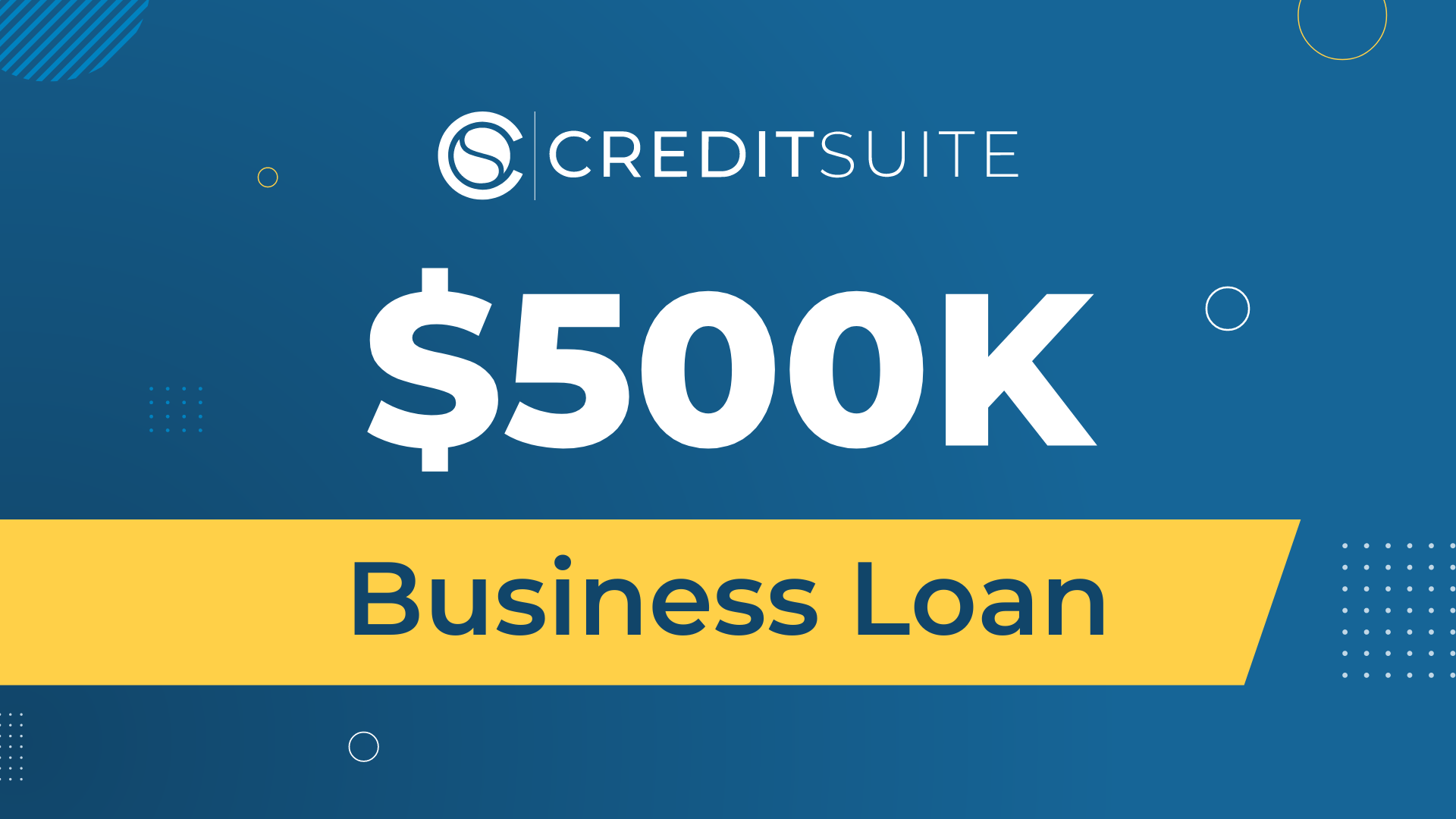Please note: Lending options, rates, and qualifications change regularly. The information in this post is based off of requirements as of original posting date of July 2, 2024.
Obtaining a $500,000 loan for your enterprise marks a notable milestone, and our guide is ready to support you at each stage. Choosing the right loan is essential, as each funding option has its unique set of conditions.
As with all types of lending, you need to reach different requirements with the proper Fundability in order to fully qualify. This article is giving you the information you need to understand the starting points for some of the most common types of funding available. Additionally, it’s important to keep maximum approval amounts in mind when searching for funding. You will find each one we touch on in this article have a wide range of maximum limits. But with the correct combination, you have the possibility to reach those funding needs and wants much easier.
The table below has the requirements for each major business loan type.
The Best $500k Business Loans
| Loan Type | Requirements | Approval Difficulty |
| Bank Loan (Term Loan) | Good credit, 2 years in business, business cash flow | Hard |
| Business Line of Credit | Good credit, 2 years in business, business cash flow | Hard |
| SBA Loan | Good credit, 2 years in business, business cash flow | Hard |
| Credit Line Hybrid | Good credit | Easy (No Doc) |
| Business Credit Card | Good credit | Easy |
| Equipment Financing | Good credit | Easy |
| Merchant Cash Advance | Credit card sales, bad credit | Easy |
| Cash Flow Financing | Business cash flow, fair credit | Easy |
How to Qualify for a $500,000 Business Loan
Securing a business loan hinges on six key factors. Traditional bank financing demands proficiency in these realms, while other funding paths might provide greater leniency. The vital elements encompass:
- Personal Credit: Many specialized lenders that concentrate on small enterprises often expect business owners to have strong personal credit scores.
- Business Credit: Creating high business credit scores and comprehensive profiles can make the loan approval process more efficient.
- Business Income: In the realm of business finance, the majority of financing options typically require evidence of income as a fundamental necessity.
- Collateral: Obtaining approval for asset-backed loans, such as vehicle financing, commercial property mortgages, and equipment loans, often involves simpler processes.
- Time in Business: Most corporate finance providers typically favor engaging with firms that have an operational track record of two to three years.
- Industry: Even with a solid economic foundation, certain sectors may encounter obstacles in securing approval.

The Best $500k Business Loan Types
Bank Loans (Term Loans)
Commercial lending through conventional banks is often referred to as “term loans.” These require regular payments over an agreed-upon “term,” typically lasting between 3 and 5 years. Such financing usually comes with fixed interest rates.
Requirements: To qualify for bank term financing, entrepreneurs typically require a strong personal credit record (FICO Scores exceeding 680), a business operational for a minimum of two years, and yearly revenues of at least $100,000.
Business Line of Credit
Securing authorization for business credit lines, similar to term loans, is often a service provided by traditional banks. While the interest rates can be attractive, the criteria for qualification tend to be strict.
Upon approval, you receive a loan that operates much like a credit card, allowing for varied applications. A designated credit limit, let’s say $500,000, is established, with incremental repayments required to settle the outstanding amount.
Requirements: For qualification of business credit lines, small business proprietors usually require a robust personal credit history (FICO Scores above 680), a minimum of two years in business operation, and yearly revenues surpassing $100,000.
SBA Loans

Merging assistance from conventional banks with federal backing, SBA Loans provide beneficial conditions and reduced interest rates. Yet, navigating the approval process for these loans can present challenges.
Several SBA loan options exist, with the 7a and 504 loans standing out as top choices.
Requirements: To qualify for SBA loans, businesses frequently need to demonstrate one year of operational history, robust personal creditworthiness, and meet certain revenue benchmarks.
Credit Line Hybrid
Credit Suite introduces an innovative option known as the Credit Line Hybrid, ensuring rapid approval for business financing ranging from $10,000 to $150,000, with minimal documentation needed.
Requirements: The Credit Line Hybrid necessitates a respectable personal credit score (FICO 680 or above). It’s open to startups without a history, collateral, or substantial cash flow, simplifying the application process.
Business Credit Cards
Business credit cards offer an alternative avenue for financial support, featuring straightforward qualification criteria. Operating much like personal credit cards, they extend a line of credit requiring monthly repayments.
The primary difference between business and personal credit cards lies in the typically higher credit limits available to businesses. Moreover, building a credit history for the business enables owners to obtain these cards without solely depending on their personal credit scores.
Requirements: Typically, business credit cards require a robust personal credit record, and occasionally, they may also evaluate the company’s revenue.
Equipment Financing

Obtaining equipment financing offers a more straightforward path to eligibility compared to other options.
This entails setting up either a loan or lease with consistent monthly payments to acquire machinery or heavy equipment. If you’re seeking financing, especially a $500,000 loan for equipment acquisition, this option deserves thorough consideration.
Requirements: In contemplating equipment financing, it’s essential to possess a strong personal credit background and a genuine willingness to actively participate in the process.
Merchant Cash Advance
Utilizing a company’s “merchant processing” system, merchant cash advances manage credit card transactions. In this arrangement, the creditworthiness of the business owner and additional factors are of lesser importance.
Once funds are received, repayment is automatic, with a portion of sales deducted, removing the need for fixed payment schedules.
Considering their higher financing expenses, these advances should be regarded as a last resort when other funding options are available to the business owner.
Requirements: A steady flow of monthly income from credit card sales, ideally more than $10,000, is greatly desired. In such cases, having credit that’s not impeccable is deemed acceptable.
Cash Flow Financing
Acknowledging the drawbacks of merchant cash advances, Credit Suite offers a superior option known as Cash Flow Financing. Much like merchant cash advances, the key criterion for this financial method is the business’s cash flow.
Yet, Cash Flow Financing differentiates itself by not confining eligibility to just businesses with revenue from credit card sales. It evaluates all types of cash income instead.
Requirements: Strong cash flow, at least $10,000 per month. Below average credit scores accepted.
Looking for another loan amount? Consider these articles: $900k Business Loan Options, $800k Business Loan Options, $700k Business Loan Options, $600k Business Loan Options, $400k Business Loan Options, $300k Business Loan Options, $250k Business Loan Options, $200k Business Loan Options, $150k Business Loan Options, and $100k Business Loan Options.

